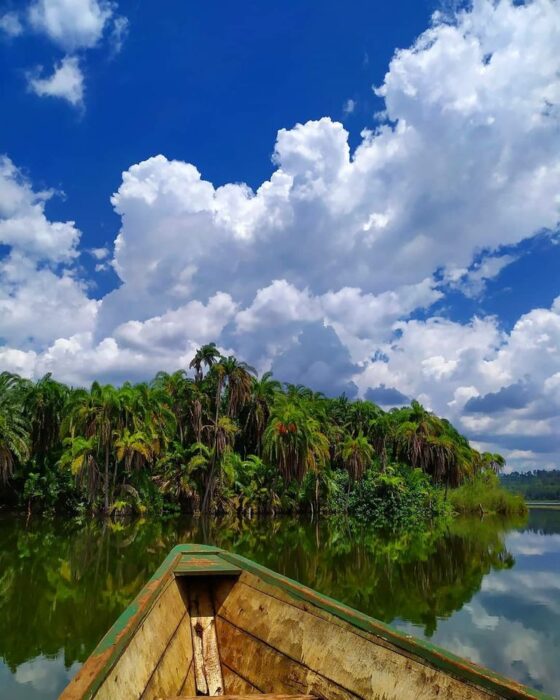Located in northern Burundi, Lake Rwihinda is an oasis of biodiversity and a popular destination for its peaceful surroundings. Nicknamed "Bird Lake", it is an important stopover and hibernation area for many migratory species. This article explores the nature, local interest and tourism aspects of Lake Rwihinda.
A rich and fragile ecosystem
- Location and features: Visit Lake Rwihinda is part of a complex of wetlands in the Kirundo region. Covering an area of around 425 hectares, it is relatively shallow.
- Floating islands: Islands of dense vegetation called "ibishinga" move with the wind across the lake, forming habitats for a variety of species.
- Avifauna: The lake's greatest attraction is the many species of birds that frequent it: egrets, pelicans, ducks, tantals... Large populations of migratory birds spend the winter here (December-April).
- Biodiversity: The lake is also home to fish, amphibians, reptiles and aquatic mammals (hippos).
Importance of Lake Rwihinda for local communities
- Resources: The lake and surrounding wetlands provide water for agriculture and domestic use. Fishing is an essential source of income and food for the local population.
- Protection: Lake Rwihinda is classified as a "Managed Nature Reserve" at national level, and has benefited from protection measures since 1980.
- Threats : Overfishing, the use of agricultural pesticides and unregulated development all represent risks for this fragile ecosystem.
Tourism at Lake Rwihinda
- Nature and birdwatching: The lake offers a peaceful setting and the opportunity to discover its rich birdlife.
- Boat trips: You can also take a pirogue to approach the central islet, Akagwa.
- Local experiences: Interaction with fishing communities allows us to immerse ourselves in their traditional way of life.
- Accessibility: Lake Rwihinda is close to the town of Kirundo. Day trips from Bujumbura are also possible.
Tips for visiting Lake Rwihinda responsibly
- Season: The dry season (June-September) and the migratory season (December-April) are ideal for maximum birdwatching.
- Local support : Hiring a local guide helps you understand the lake and contributes to the local economy.
- Respect for nature : Watch the birds from a distance, don't litter, and respect the tranquillity of the area.
- Accommodation : If you'd like to stay on site, find out about accommodation options in Kirundo and the surrounding area.
Conclusion
Lake Rwihinda is one of Burundi's precious natural jewels. Its exceptional biodiversity and serene setting make it an attractive destination for nature lovers. Aware of its fragility, responsible tourism can make a positive contribution to its preservation, enabling future generations to enjoy this heritage treasure.


There are no reviews yet. Be the first one to write one.